
On April 18, the Centre for Digital Humanities (CDH) and TMU Libraries celebrated the launch of the Yellow Nineties 2.0 (Y90s 2.0) scholarly website, an online resource dedicated to the study of late-Victorian ‘Little Magazines.’ In celebration of the project’s completion, CDH hosted a full day hybrid Symposium, that included panel discussions and a keynote by Canada Research Chair in Digital Humanities, Associate Professor, Department of Communication, University of Ottawa and TMU alumna Dr. Constance Crompton (ComCult ’12). This was followed by an evening reception hosted by TMU Libraries, which exhibited its vast and growing print collections in support of the Y90s 2.0 digital editions–collections that have been used for graduate and undergraduate research for over a decade.
Y90s 2.0, nearly two decades in the making, marks the culmination of work accomplished at the Centre for Digital Humanities by Professor Emerita Lorraine Janzen Kooistra and her interdisciplinary team of scholars, students, and librarians. Used in teaching and research around the world, Y90s 2.0 is an open-access resource featuring digital editions of eight late-Victorian little magazines known for their experimental formats, socially dissident art and literary contents, and sexually provocative themes. Produced between 1889 and 1905, the magazines, of which The Yellow Book is best known, were published in contrast to mainstream serial publishing practices popular during the Victorian era, and were distinguished by their design and high production standards.
Within the magazines, articles, poems, stories and art were printed using “wide margins, decorative devices outside typographical lines, and blank pages separating images and text,” says Janzen Kooistra. And, while some “titles were connected to trade publishers, others were self-published, or published by a firm formed expressly to bring out a counter-cultural magazine,” says Janzen Kooistra, adding that “Y90s 2.0 and the Libraries’ material collections allow students to learn about a publishing genre that emerged in the 1890s but continues to thrive today–for instance, TMU’s own little magazine of art and literature, The White Wall Review (1976-present).”
–
The digital humanities project began the process of digitization and encoding the magazines’ images and texts from the Library’s collection of The Yellow Book–a 13 volume serial, in 2005. Five years later, phase one launched with the digital edition of volume one of The Yellow Book, hosted on the then newly released website, Yellow Nineties Online. With the launch “the Libraries, in addition to faculty use, offered graduate level research skill workshops specific to its print collection and online resource,” says Liaison Librarian Val Lem, adding that the workshops are ongoing. Further, the English department uses the Libraries’ collection of magazines and the Y90s site in its required undergraduate research methods course; this too is ongoing.
Once the first volume of The Yellow Book was online, the remaining 12 volumes were encoded in digital editions over the following five years. As phase one was completed it was decided that TMU Libraries (then Ryerson Library) would take over hosting the site, bringing the entire project in-house. At this stage, the project was reconceptualized and reconfigured as Yellow Nineties 2.0.
Now, with the completion of Y90s 2.0, the project celebrates the late-Victorian Little Magazine as a distinct publishing genre situated on the margins of industrial capitalism and mass print media, and distinguished by avant-garde content, mode of production, and material form.
Working in collaboration with Professor Janzen Kooistra and the CDH, TMU Libraries Special Collections staff and librarians have, throughout the past two decades, sought to acquire full print runs of a number of magazine titles to support scholarship of the period and the digital humanities project. A total of 8 titles, in their full run, are available in searchable digital editions on Y90s 2.0. Six of these journals are available at TMU Libraries’ Special Collections, an acquisition noteworthy in its rarity. They include: The Yellow Book, The Evergreen, The Venture, The Dial, The Savoy, and The Pageant, and most recently the acquisition of a full run of The Elf. “Single issues of these magazines are difficult to find, and full runs are exceptional,” says Special Collections Librarian Holly Forsythe Paul, noting “researchers at TMU Libraries Special Collections have the rare opportunity to trace the entire material history of these publications from start to finish, hands-on.”
The extensive and growing print collection and launch of the Y90s 2.0 digital project opens up exciting opportunities for scholarship and exploration. The online resource features biographies of writers, artists and publishers; includes a database of ornaments to discover artworks; and publishes born-digital research on the magazines. The print collections enable scholars to ground their studies in this avant-garde movement of artists and writers, as well as fin-de-siècle publishing by providing a material understanding of the publications and their modes of production.
“By enabling scholars to see changes in format, arrangement, or substrate, as well as editorial content, the Yellow Nineties Collection provides an important resource for understanding the genre and its context,” says Forsythe Paul. With the global outreach of Y90s digital editions and TMU Libraries’ exceptional print collection of late-Victorian little magazines, the University is at the forefront for the scholarly study of this avant-garde publishing genre. “Students benefit too,” says Janzen Kooistra, “the combined digital/material resources allow them to develop original research projects, which they can publish in digital exhibits on the Y90s Classroom.”
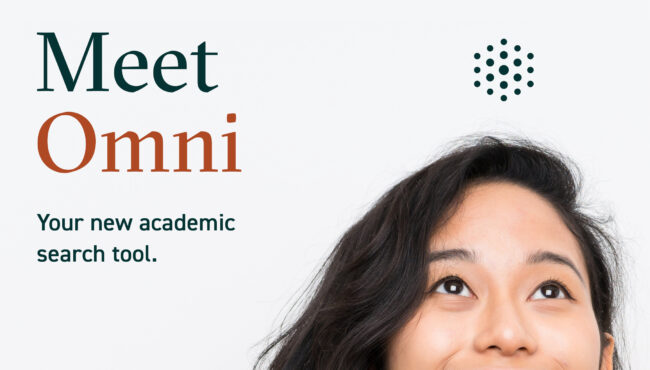 On June 12, Toronto Metropolitan University Libraries will launch Omni, an academic search tool used by 18 Ontario university libraries and designed to bring library search and service functions together to provide a seamless, one-stop search experience for users.
On June 12, Toronto Metropolitan University Libraries will launch Omni, an academic search tool used by 18 Ontario university libraries and designed to bring library search and service functions together to provide a seamless, one-stop search experience for users.  As LGBTQ+ organizations across Canada gear up for a
As LGBTQ+ organizations across Canada gear up for a 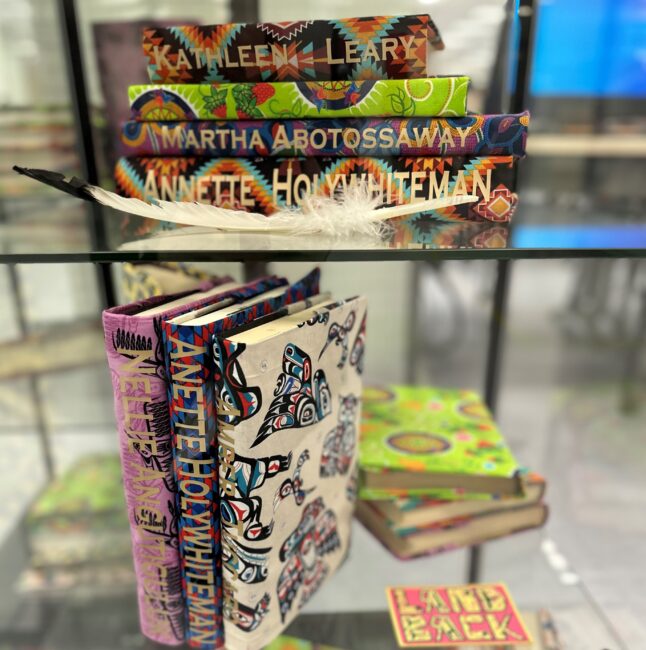
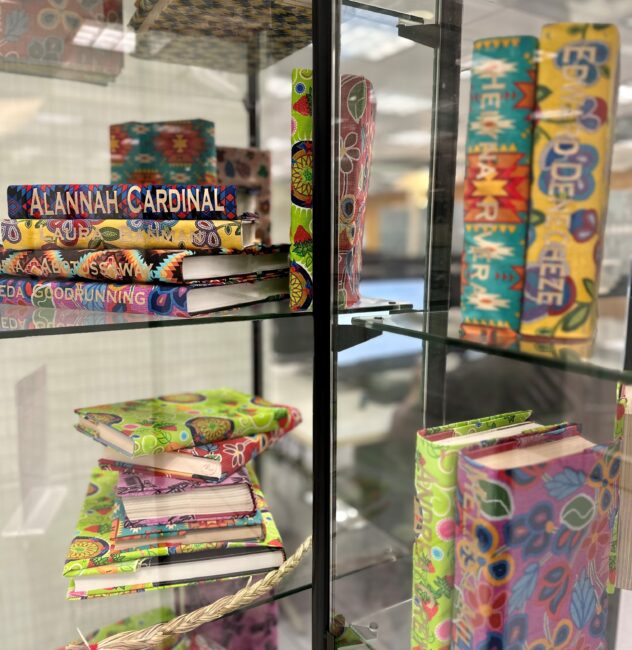 The project currently consists of micro galleries installed at various locations across Canada. A micro gallery is a temporary art installation, on a smaller scale, where individuals can see books wrapped in Indigenous materials. The names of lives lost, printed in gold letters, are placed on the spines of these books to individually respect and honour the thousands of missing and murdered Indigenous women, girls, men and two-spirit people (MMIWGM2S). Eventually, the 8,000 books from the micro galleries will be brought together into a permanent installation.
The project currently consists of micro galleries installed at various locations across Canada. A micro gallery is a temporary art installation, on a smaller scale, where individuals can see books wrapped in Indigenous materials. The names of lives lost, printed in gold letters, are placed on the spines of these books to individually respect and honour the thousands of missing and murdered Indigenous women, girls, men and two-spirit people (MMIWGM2S). Eventually, the 8,000 books from the micro galleries will be brought together into a permanent installation. 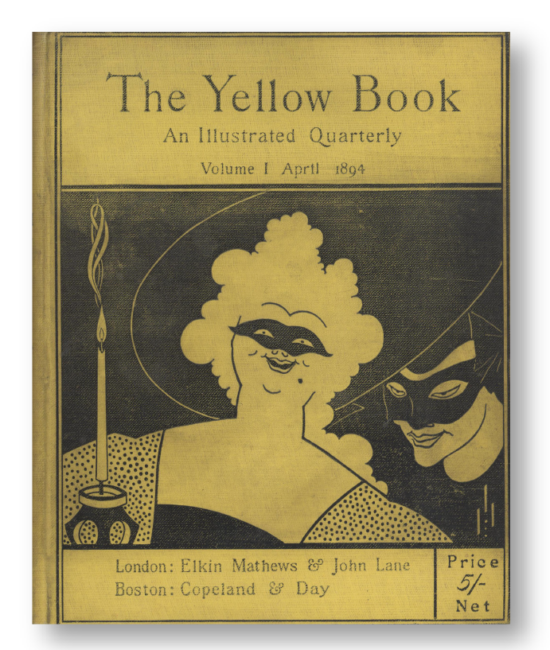
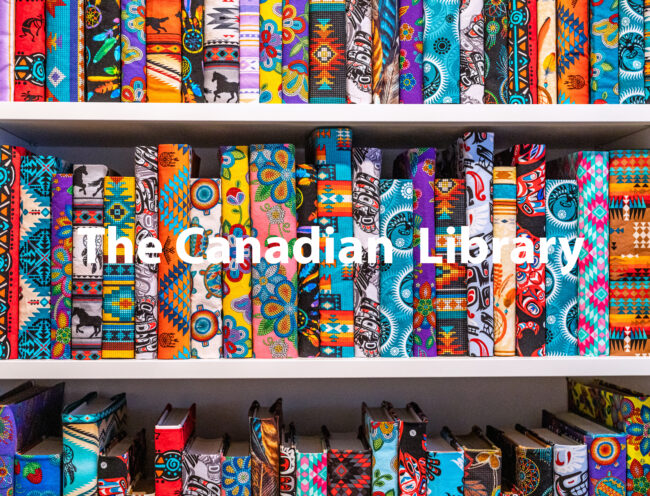 Join us for a book wrapping event to honour all Missing and Murdered Indigenous Women, Girls, Men, and Two-Spirit people (MMIWGM2S). On March 19 and March 26, TMU Libraries’ DME is hosting drop-in book wrapping events as part of the Canadian Library art installation project. The Canadian Library (TCL) is a grassroots art installation project that acts as a memorial to all Missing and Murdered Indigenous Women, Girls, Men, and Two-Spirit people (MMIWGM2S). The project currently consists of micro galleries installed at various locations across Canada.
Join us for a book wrapping event to honour all Missing and Murdered Indigenous Women, Girls, Men, and Two-Spirit people (MMIWGM2S). On March 19 and March 26, TMU Libraries’ DME is hosting drop-in book wrapping events as part of the Canadian Library art installation project. The Canadian Library (TCL) is a grassroots art installation project that acts as a memorial to all Missing and Murdered Indigenous Women, Girls, Men, and Two-Spirit people (MMIWGM2S). The project currently consists of micro galleries installed at various locations across Canada.